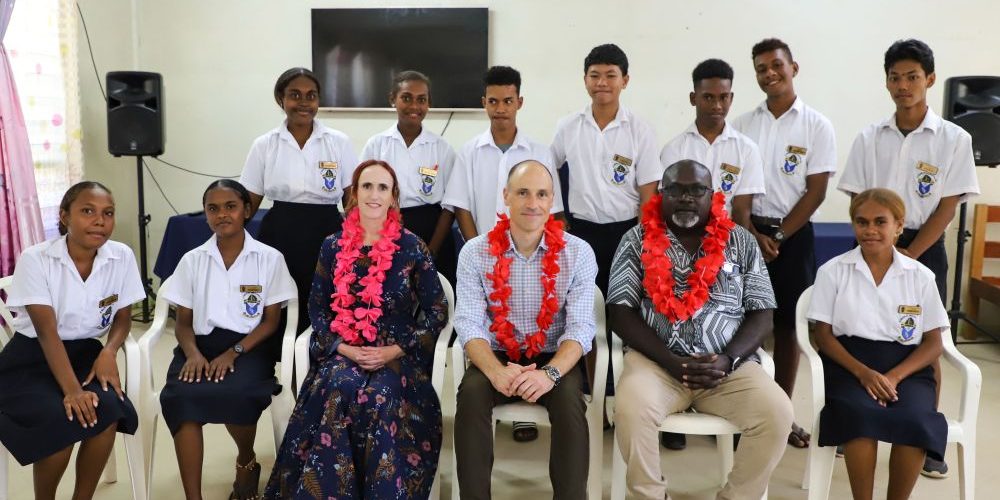Nineteen (19) schools across Honiara have received new computer laboratories funded by Australia and New Zealand, helping to bridge the digital divide and ensuring that students and teachers have improved access to technologies for learning.
These computer laboratories reflect Australia and New Zealand’s commitment to providing Solomon Islands students and teachers with digital skills and the computer equipment needed to improve learning, especially for the many children who have limited access to computers at home.
The installation of the 19 computer laboratories, each equipped with 15 laptops, was carried out by the non-governmental organisation LiteHaus International, with support from the Solomon Islands Government (SIG) Information Communications Technology (ICT) Services.
This support aligns with Ministry of Education and Human Resources Development (MEHRD), and the SIG ICT Services’ aim to strengthen digital skills in Solomon Islands’ education sector and will have a lasting impact on the schools and the communities they serve.
Minister of Education Hon. Tozen Leokana acknowledges the generous support of the Australian Government in close partnership with the Ministry of Education and Human Resources Development.
He said the IT labs are fundamental pillars of modern education that can foster E-learning.
“E-learning fosters critical thinking, problem-solving, and the ability to navigate vast oceans of information – skills far more valuable than rote memorisation. It connects our students to global conversations, diverse perspectives, and a shared human endeavour of innovation and discovery,” Minister Leokana said.
Australian High Commissioner to Solomon Islands, His Excellency Rod Hilton said this support demonstrates Australia’s commitment to enhancing education and ICT skills for Solomon Islanders to reach their full potential.
“The creation of these laboratories will equip both students and teachers with essential digital literacy skills and lead to more inclusive and effective education, helping to create more local jobs in an increasingly digital world,” High Commissioner Hilton said.
New Zealand High Commissioner His Excellency Jonathan Curr emphasised that by increasing access to digital technologies we can equip more young people with the tools they need to thrive in our modern world.
“Digital technologies improve access to educational and economic opportunities for Pacific countries and help us better understand the world around us,” High Commissioner Curr said.
Recipient schools included: Florence Young Christian School, Honiara High Senior Secondary School, Mbua Valley Community High School, St. John Community High School, St. Nicholas Anglican College, Betikama Adventist College , Bishop Epalle Catholic School, BP Norman Palmer School, Coronation Christian School, Koloale Community High School, Mbokonavera Community High School, Naha Community High School, Panatina Community High School, Tamlan Community High School, Tuvaruhu Community High School, Vura Community High School, White River Community High School and Woodford International School.
Principal of Bishop Palmer Anglican School, one of the recipient schools, Mr. Henry Rahemola, expressed heartfelt gratitude for the support.
“We are thankful to the Governments of Australia and New Zealand and MEHRD, for providing these digital tools to our school.
“This donation demonstrates the ESSP’s ongoing dedication to fostering quality education and promoting a culture of learning within the school community.
“The laptops will enable us to accommodate more students and improve our digital learning environment,” he said.
In addition to these Honiara schools, computer laboratories were also installed in 6 schools in Malaita Province and 5 schools in Temotu Province.
LiteHaus International has facilitated a Teacher Training workshops from March 31 to April 4, 2025, for selected teachers and school leaders from recipient schools.
ESSP is funded by Australia and New Zealand working in partnership with MEHRD to improve access to quality basic education for children in Solomon Islands.
- ESSP Press









